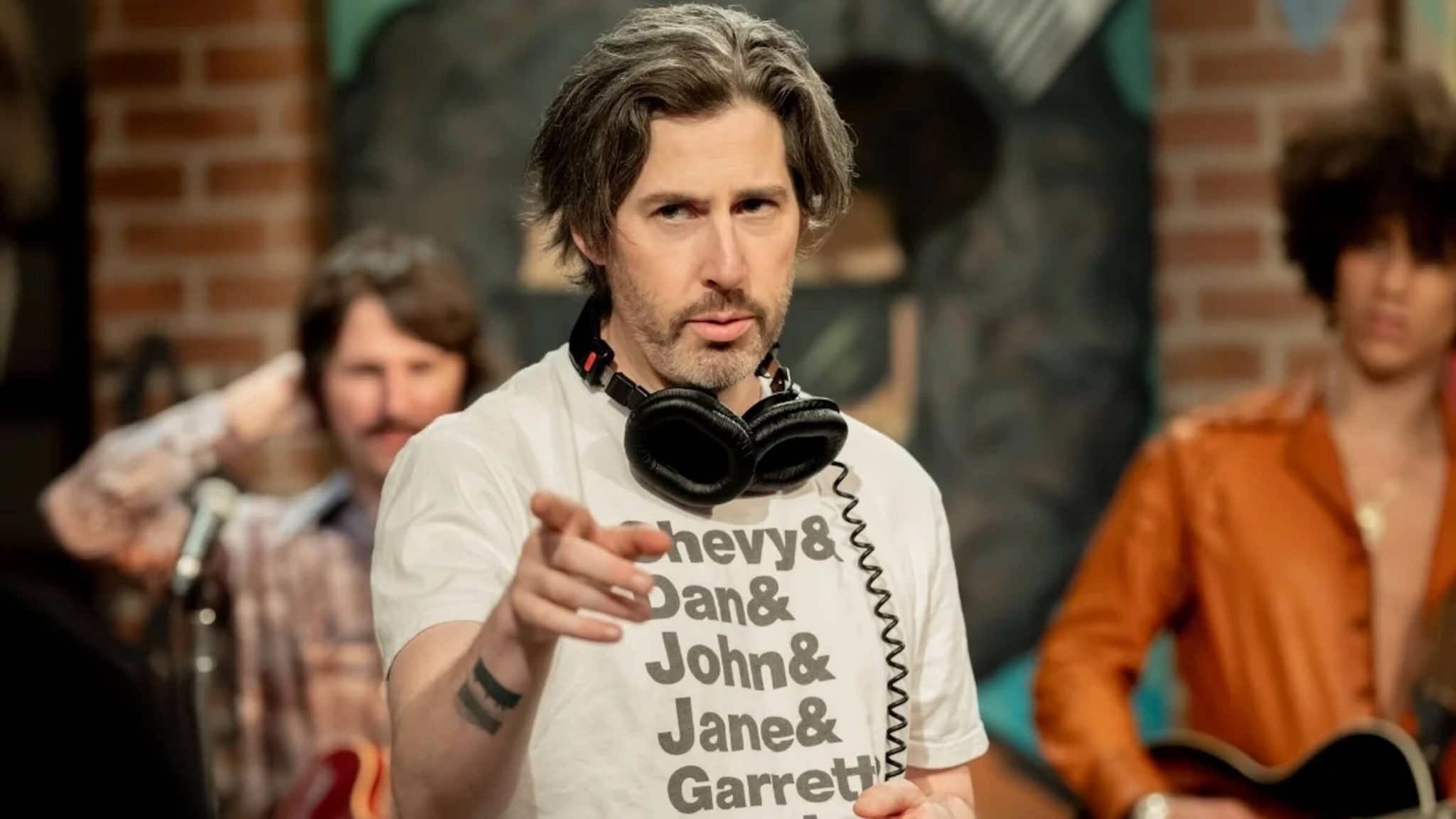
What are the wisest and most inspiring quotes from the late writer, producer, and director John Hughes that screenwriters can apply to their screenwriting journey? If you're not familiar with iconic filmmaker John Hughes, here's a quick recap:
John Hughes was born on February 18, 1950, in Lansing, Michigan.
When he was a teenager, Hughes moved with his family to Chicago, a city that would be the setting for his most iconic cinematic stories.
Read ScreenCraft's How Chicago Became the Mecca of Modern Comedy Writing!
After high school, he left Chicago to attend the University of Arizona in Tucson. He didn't graduate, however, instead choosing to move back to Chicago to work as an advertising copywriter.
Hughes launched his career in comedy — and advertising before that — by writing jokes for stand-up comedians like Joan Rivers and Rodney Dangerfield. But it wasn't until he was hired by National Lampoon Magazine to write feature-length comedy scripts for movies that would catapult him to high comedy status in Hollywood.
He wrote National Lampoon's Class Reunion in 1982, followed by National Lampoon’s Vacation a year later, which would go on to be one of his greatest hits as a screenwriter.
Hughes had been writing for the actual magazine prior to these screenplays, but his stories were so good, and his output was so fast that the magazine found it hard to keep up with him.
He wrote National Lampoon's Class Reunion while still on staff with the magazine. They were attempting to follow up on the success of their massive 1978 hit National Lampoon's Animal House. However, the eventual comedy would fail to meet up to such grand expectations.
National Lampoon's Vacation began as one of Hughes's first stories, which were inspired by his childhood trips with his family. Vacation '58 later became the basis for the eventual hit film.
Hughes followed up that script with another hit that was produced that same year — Mr. Mom.
With two hits in a row, Hughes was given a three-picture deal with Universal Pictures.
The first of those was his directorial debut — Sixteen Candles. The film told the story of a girl's "sweet" sixteenth birthday that her whole family has forgotten about as she suffers from every embarrassing moment for a teenage girl possible.

The film was a hit and managed to become a cultural phenomenon, telling a teenage story with truth and honesty compared to the antics of movies featuring teenagers in prior years.
Hughes would follow that hit with additional films that successfully captured teenage angst and life — The Breakfast Club, Pretty in Pink, Weird Science, Ferris Bueller's Day Off, and Some Kind of Wonderful. He handed over directing duties to collaborator Howard Deutsch for Pretty in Pink and Some Kind of Wonderful, but wrote the scripts and produced as well.

He branched out away from teen-driven stories in 1987 by writing and directing the hit comedy Planes, Trains and Automobiles starring Steve Martin and John Candy. The film is now a celebrated holiday classic.

Hughes would direct John Candy again in Uncle Buck and wrote a sequel to his first hit with National Lampoon's Christmas Vacation.
He then wrote and produced the massive hit comedy Home Alone. His final film as a director was 1991's Curly Sue.
He also wrote screenplays under the pseudonym Edmond Dantès — including Maid in Manhattan, Drillbit Taylor, and Beethoven.
Sadly, the world would lose Hughes in 2009 from a heart attack. His funeral was held on August 11 of that year in Chicago and was buried at Lake Forest Cemetery. Gone, but not forgotten. His legacy lives on.
Here we present ten wise and inspiring quotes from one of cinema's greatest storytellers, John Hughes, along with our own elaboration on his wise words.
"At the time I came along, Hollywood's idea of teen movies meant there had to be a lot of nudity, usually involving boys in pursuit of sex, and pretty gross overall. Either that or a horror movie. And the last thing Hollywood wanted in their teen movies was teenagers!"
What does this teach screenwriters? Give Hollywood what they didn't know they needed.
Industry insiders get caught up in chasing trends. In the end, it's a business. Hollywood is in the business of making money, so it's only natural that they chase trends.
But that's not your job as a screenwriter. It can't be. By the time your trend-chasing script gets written, marketed, and into the hands of industry insiders, the trend is dead.
Instead, you need to focus on giving them what they didn't know they wanted or needed — the possible future trends. Take what's been done and evolve it. Do it better and do it differently. And if you focus on story and character — rather than the trending formulaic beats — your scripts will stand out.
"When I did Ferris Bueller's Day Off, I had the idea on Monday, and the following Tuesday it was in budget at Paramount. I couldn't walk."
While there's something to be said about preparation in screenwriting, sometimes you just have to let the story and characters out. For a writer like John Hughes, there's no time to over-analyze and plan. It's all about getting the story out in a fever.
Now, this is John Hughes. He was known for his fast writing. It's not for everyone. But the lesson to be learned is that spending a year writing a single script isn't going to do you any good.
Commit to it, sit down in front of that screen, and trust the story and characters to take you on a journey.
If anything, every screenwriter should just try to write a script like that — at least once.
"I so desperately hate to end these movies that the first thing I do when I'm done is write another one."
It's very easy for screenwriters to dwell on a project. A majority of the time, it's just hard to let go. You've been working on the script for months. You've likely had the story in your head for months or years prior.
When you finish, it's tempting to keep tinkering with it. Yes, you want to get that script to the best possible draft it can be, but at some point, you have to let it go.
And there's no better way to do that than starting the next script. If you want to be a professional writer, you need to be able to do that.
"I don't consider myself qualified to do a movie about international intrigue — I seldom leave the country."
It's easy to succumb to the pressures of what other people say you should be writing. But sometimes you just have to remember to write what you know. And when you write what you know, you're writing about what you're passionate about. That is what drives you to write great stories.
If you're too busy trying to keep up with the trends or write what other writers are writing, you're going to burn out quickly. Write what you know.
"My heroes were [Bob] Dylan, John Lennon, and Picasso because they each moved their particular medium forward, and when they got to the point where they were comfortable, they always moved on."
Hughes was at the top of his game writing teen angst stories. He was the one that moved that genre forward from what it was before he came into the picture. And when he got comfortable, he moved on and wrote an amazing screenplay with Planes, Trains and Automobiles.
As a screenwriter, you must always be trying to move genres and subgenres forward with your writing. And you must always strive to grow as a writer. Being comfortable and complacent will eventually kill your imagination.
Challenge yourself. Evolve. Take on that script that scares you.
"I don't think of kids as a lower form of the human species."
John Hughes wrote some of the best kid characters — whether they were teenagers or a little boy tasked with fending off burglars without the help of adults.
As a former script reader for a major studio, I can't tell you how many scripts I have read where the screenwriter wrote horrible children characters that were nothing but whiney, annoying, or unintelligent.
Do what Hughes did best — write them like adults. Inject those elements of childhood wonder, yes, but try to treat them with respect and understand that while they may be young, they're not stupid. Kids are smarter than most think. Show that in your screenplays.
"I stumbled into this business. I didn't train for it. I yelled, 'Action!' on my first two movies before the camera was turned on."
Every writer and filmmaker starts at the bottom. If you feel as if you're untrained and inexperienced, don't worry about it. You're in the same boat as the legends were when they first started out.
The key is that they didn't use that as an excuse. Instead, they just went out and wrote that script or directed that movie.
"I happen to go for the simplest, most ordinary things. The extraordinary doesn't interest me. I'm not interested in psychotics. I'm interested in the person you don't expect to have a story."
While some scripts call for the extraordinary, the ones that audiences respond to most are those that they can most easily relate with.
Catharsis is the single most important element of screenwriting. You want that person to leave the theater moved. You want them to be affected and changed in some way. And the only way to accomplish that is by offering characters that they can somehow identify with. And finding a way to tell a story about an otherwise ordinary person or subject is the best way to go about doing that.
"Life is not always funny. Life is not always tragic. And to portray it realistically, it's gotta have a mix of both."
When you're writing a comedy, inject some drama and tragedy. It will enhance the comedy. When you're writing a drama, inject comedy and humor. It will enhance the drama.
When you have a mix of drama and humor within your screenplays, you're imitating life. And when you're imitating life within a screenplay, you're going to offer a more relatable story to the audience, which causes them to be more empathetic to your characters and makes them have a cathartic reaction to your story.
Read ScreenCraft's The Single Most Important Element of a Successful Screenplay!
"Things don't always go right for me. And you get kind of used to it. And you can either get incredibly depressed about it, or you can laugh at it. Find humor in it."
Two lessons for screenwriters can be learned from this quote.
First, Hughes was asked about what it was in his life that allowed him to write things that were so funny. His answer was a brilliant portal into his creative thinking and conceptualization. He looked at his life and the things that always went wrong, and he found the humor in it.
That's the best type of comedy — moments that come from truth and honesty about life.
The second lesson you can learn from this quote is how you handle yourself during your screenwriting journey. You're going to be facing a lot of rejection and failure. It's part of the process. No one escapes it.
And when that happens over and over and over, you can either get incredibly depressed about it, or you can laugh about it and move forward.

Read ScreenCraft's 15 Inspiring Walt Disney Quotes for Screenwriters!
Ken Miyamoto has worked in the film industry for nearly two decades, most notably as a studio liaison for Sony Studios and then as a script reader and story analyst for Sony Pictures. He has many studio meetings under his belt as a produced screenwriter, meeting with the likes of Sony, Dreamworks, Universal, Disney, Warner Brothers, as well as many production and management companies. He has had a previous development deal with Lionsgate, as well as multiple writing assignments, including the produced miniseries Blackout, starring Anne Heche, Sean Patrick Flanery, Billy Zane, James Brolin, Haylie Duff, Brian Bloom, Eric La Salle, and Bruce Boxleitner. Follow Ken on Twitter @KenMovies
For all the latest ScreenCraft news and updates, follow us on Twitter, Facebook, and Instagram.
Tags
Get Our Screenwriting Newsletter!
Get weekly writing inspiration delivered to your inbox - including industry news, popular articles, and more!



























